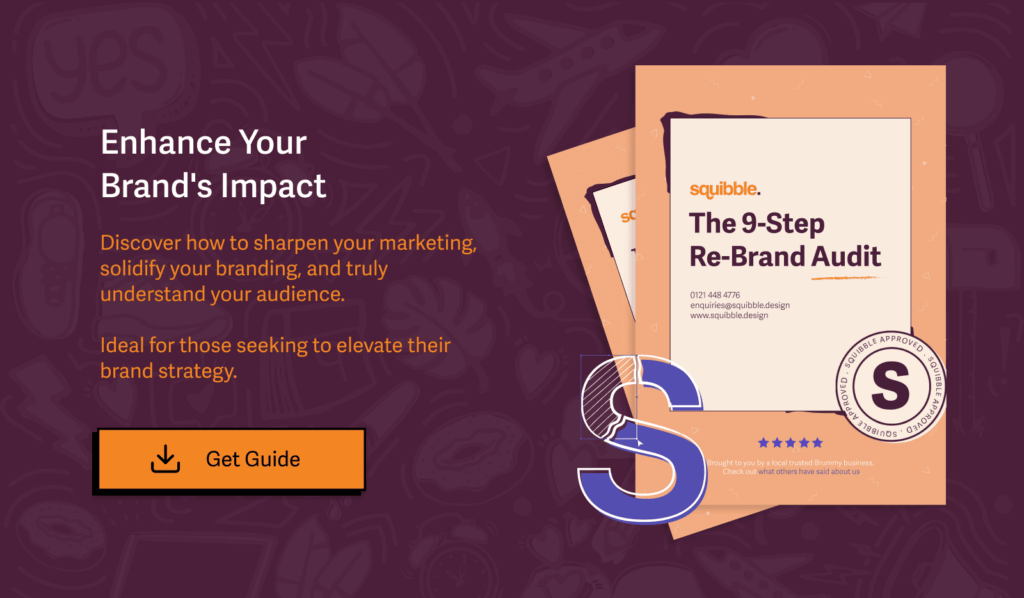The debate between old-school fundamentals & new-age innovation in marketing has never been more relevant.
And the challenge is clear: how do you stay ahead of the curve while preserving your brand’s core identity?
Let’s dive into how to strike the perfect balance between leveraging marketing trends & sticking to time-tested principles, ensuring that innovation enhances, rather than erodes, your business values.
Why does old-school marketing still matter?
At the heart of every business is a clear value proposition, strong relationships & a trusted brand.
These are hallmarks of old-school marketing & they rely on direct engagement, word-of-mouth & long-term trust-building.
While this might seem dated in the age of AI-driven campaigns, they remain essential.
3 elements of traditional marketing that remain relevant
- Brand consistency: Having a cohesive brand voice & message builds trust. Your customers & prospects want to know what you stand for. And old-school marketing ensures your core values & mission are communicated clearly & consistently.
- Relationship building: In B2B, we know relationships are everything. Traditional marketing emphasises face-to-face interactions, whether through networking events or 121 sales approaches. These strategies help develop deep, long-term relationships, often sealing the deal.
- Trust & reputation: Many purchasing decisions are based on the brand’s reputation, which is built over time through reliable delivery, customer satisfaction & a strong industry presence. Old-school marketing emphasises customer testimonials, case studies & referrals, an essential trust-building tool.
But while these foundations are critical, relying solely on them is no longer enough. Today’s marketing landscape is vastly more complex and fast-paced, and new tools and techniques can amplify what old-school strategies already do well.
The power of new-age marketing
The digital revolution has transformed the way B2B marketing is executed. From AI-driven analytics to hyper-personalised content, marketing these days opens businesses up vast opportunities for scaling, reaching broader audiences & making more data-informed decisions.
However, these tools work best when grounded in the principles of traditional marketing.
Let’s break down how new-age marketing techniques can complement & enhance those all-important old-school fundamentals:
- Data-driven insights: Modern marketing thrives on data, allowing businesses to make decisions based on solid metrics rather than guesswork. Predictive analytics, AI & CRM platforms allow us to better understand customer behaviour & preferences, enabling businesses to craft personalised campaigns that hit the mark. But it’s essential to balance automation with a human touch, data insights should inform your relationships, not replace them.
- Content personalisation at scale: Automation & AI make it possible to personalise marketing content more widely, tailoring emails, white papers & ads to each prospect. This brings the personal touch of traditional marketing into the digital space. But even as you automate, your message must remain true to your brand’s voice, values & ethos. Authenticity will always resonate, whether in traditional or digital marketing.
- Omnichannel engagement: Today’s buyers expect to interact with brands across multiple platforms. New-age marketing offers B2B companies the chance to engage customers through email, social media, video content & more. It’s essential to maintain a unified brand experience across all these touchpoints. The focus should be on seamless integration, ensuring each interaction reinforces your brand’s core message, rather than creating disjointed experiences.
- Agility & experimentation: Modern marketing offers B2B companies the opportunity to test, learn & pivot quickly. Whether through A/B testing or using analytics to refine campaigns in real time, you can constantly iterate to improve your strategy. However, this agility should never lead to a compromise on long-term brand building. Fast experimentation needs to align with the slow & steady development of trust & reputation.

Balancing innovation with fundamentals
How can your business strike the balance between old-school marketing principles & new-age technology?
#1 Keep your brand at the heart of everything
No matter how advanced your marketing technology becomes, your brand identity has to remain the anchor.
Ensure every piece of content, whether it’s a LinkedIn post, an automated email, or a sales call, reflects your brand’s core values. A clear, consistent message strengthens your reputation & builds long-term trust.
#2 Use technology to enhance relationships, not replace them
Automation can streamline processes, but in B2B, relationships remain a core differentiator.
Use digital tools to gather insights, nurture leads & stay in touch, but always maintain the personal touch. Make time for human connections, whether through networking events, video calls or personal check-ins.
#3 Leverage data with caution
While data-driven marketing is powerful, it’s essential to use it wisely.
Avoid becoming overly reliant on metrics & algorithms at the expense of creativity & intuition. Remember, behind every data point is a real person, with real business challenges & goals.
Don’t underestimate the power of the good, old gut feeling.
#4 Innovate, but don’t chase every trend
With new technologies emerging every day, it’s tempting to chase the latest trend. But not everything is relevant to your business.
Stay grounded in your goals & ensure any new tool or strategy supports your broader mission. Choose technologies that align with your long-term objectives rather than getting distracted by flashy features which don’t add real value.
The future is blended
Marketing success doesn’t come from choosing between old-school fundamentals & new-age innovation, it’s about blending the two.
Businesses that strike the right balance will be the ones that can leverage modern technology to scale & personalise their efforts while staying true to the core values & relationships which have always driven success.
By integrating the best of both worlds, B2B companies can create marketing strategies that are not only agile & data-driven but also deeply rooted in authenticity, trust & long-term relationship building.
The future of marketing is hybrid – those who embrace both fundamentals & innovation will lead the charge.








